|
9/11/2014 Someone You Know Is An AbuserBy Rachel Miller, See the Triumph Contributor
I’m a football fan, a very big football fan. Football Sundays at our house are sacred. I am also a survivor of domestic violence and an advocate, so needless to say, what has been happening within the NFL recently involving domestic violence has been of particular interest to me. Watching Inside the NFL Tuesday night, I was curious to see how the hosts would approach this very sensitive issue. What struck me most was former Ravens safety, Ed Reed’s, very obvious struggle with how to reconcile who he believes Ray Rice to be, a friend, former teammate, and, as he said last night, a man of “integrity,” and the man he saw brutally assault his then-fiancé, now wife, on that tape. My heart went out to him, in all honesty, because his struggle is a common one. Hard Truths The statistics tell us that 1 in 4 women will be affected by domestic violence during their lifetime. If you are on Twitter and have been following the #WhyIstayed #WhyIleft feeds, you can see survivors, including me, talking about our experiences and see just how many of us there are. Someone you know is or was in an abusive relationship. While that truth, in itself, can be hard for people to accept and deal with, what appears to be even more challenging for people to acknowledge is that these statistics also mean someone you know is an abuser. Yes, you know someone who abuses their family. Someone you believe is a good person, fun to hang out with, someone you’d trust your secrets to and kids with, abuses their family behind closed doors. I say family because children who witness domestic violence are also victims, and a large percentage of those who abuse their partners also eventually target their children. Believe it or not, abusers look just like you. They may hold a good job, go to church, coach little league, live in a nice house, drive a nice car, dress well, have a great sense of humor, and even volunteer at the local homeless shelter. The image they present, and the image the family presents, tell you nothing about the dynamics of their relationship with their intimate partner. If abusers looked evil or were awful to everyone, no one would ever have anything to do with them in the first place. Domestic violence and abuse are not only about the act of physical assault(s) on a partner. They are not about a lack of ability to manage anger, nor about a momentary loss of control. Domestic violence encompasses a pattern of behavior that is about gaining or maintaining power and control over an intimate partner or family member. What this means is that what happened to Janay Rice in that elevator is very likely only the escalation of the abuse she was subjected to prior. Most domestic violence starts as emotional abuse. Tactics such as intimidation, denial, blame, isolation, humiliation, gaslighting, and many others create a dynamic of fear within the relationship. It’s not even always fear of physical abuse—fear of retaliation in other ways can be just as debilitating. An abuser can keep a victim under their thumb without ever raising a hand to them. Your Role With this understanding, we need to look at how we interact with those who choose to abuse, because that is what they do, they choose to abuse their supposed loved ones. Only they are responsible for their behaviors, and until every person, in every community, begins holding them, and only them, accountable, they will continue to hide behind our silence. It can be challenging and uncomfortable to have to view an acquaintance, friend, or family member in this light. I do get that. No one wants to confront a friend or family member about how they treat their partner or what may be happening in their home, but if you don’t, who will? If you don’t question why they think treating someone they claim to love in a harmful way is okay, why would they ever think it’s wrong? I heard every one of the Inside the NFL hosts say “I just can’t believe this from Ray Rice” or something to that effect. They may not be able to see the man they know doing this, but that doesn’t change the fact that he did. If those closest to Mr. Rice, or any abuser, don’t sit him down and tell him his behaviors and beliefs about how to treat his partner are wrong, why would he think he needs to stop or change? I understand that no parent wants to think they raised someone who is capable of abuse. I understand that no one wants to think their sibling, cousin, uncle, aunt, nephew, niece, or friend could ever do something so awful. I understand many will want to say that what happens in someone else’s home isn’t their business. I even understand that having these types of conversations with someone is a little scary and very uncomfortable, especially if you have a hard time reconciling the image of the person you carry in your head with the kind of person who abuses their family. What I don’t understand, and never will, is how so many who know, suspect, or have been told that someone they know is abusive stay silent. Not only do most stay silent, they often choose not to defend the victim when the opportunity presents itself. This may manifest itself in remaining friends with an abuser despite being told that what they have done, or refusing to choose sides when a victim finally finds the courage to leave. It may be in allowing the abuser to badmouth their ex or even believing that just hanging out with them once in a while or grabbing a beer doesn’t mean you approve of what they do or did. Until abusers have to pay consequences within their own circles and communities, they will continue to believe that their behavior and beliefs are acceptable. Until the shame is shifted from the victim to the abuser, domestic violence will continue to be a pervasive problem within our society. What many fail to realize is our willingness to broach the subject with an abuser not only aids the victim, it also helps the abuser, who usually functions in the darkness of silence and secrecy, by turning the lights on and aiding them in confronting their own issues. Moving Forward If you found out your friend was child molester, would you not take the side of the child? Would you think it was acceptable to hang out with him at the local bar? Would you remain indifferent to the child’s suffering? Would you ignore the fact that they need get help? Somehow I doubt it. Yet when it comes to domestic violence, the reaction is often exactly that. I hear things like “Well, there are two sides to every story.” “No one knows what really happens in someone else’s relationship.” “Maybe she’s just saying that to get back at him or to get the kids.” The problem with these attitudes is that they are not only victim-blaming, they falsely assume that most victims are making it up or exaggerating. The number of false domestic violence allegations is low, very low. In fact, domestic violence and abuse are widely under reported. If someone tells you they are or were abused, they are probably only giving a glimpse into the reality of what they suffered. We need to be willing to tell abusers they need to get help. We need to be willing to end relationships with those abusers who refuse to see the wrong in their behaviors and get help. We need to be willing to stand on the side of victims regardless of whether or not we can “see” the person we thought we knew abusing. I don’t pretend this is easy or simple, but every time we do, we make it safer for victims to come forward. We make it harder for abusers to live among us. We show our children that abuse is not acceptable in any form and that it is okay to stand up and say so. What we tolerate will repeat itself, so we need to stop pretending like we aren’t tolerating abuse because we are. It is easy to sit back and say intimate partner violence is wrong, or I would never hit a woman. It is much harder to put your money where your mouth is and do the right thing. If you know someone who is or has been abusive to their partner, in any way, emotionally, physically, financially, or sexually, and it is almost a guarantee that you do, I urge you to speak up. Tell them they need help, provide them with resources to get it and if they refuse, be willing to stop tolerating the presence of abusers in your life. By Elissa P. Pope, See the Triumph Guest Blogger Enough is enough. Acquaintance rape and sexual assault on college campuses seem to be out of control. And though recently universities are facing the fire for their lackluster response to the epidemic, the fact is that many campuses simply are not prepared to be the hand of the law when it comes to sexual violence on their campuses. Something needs to change, because according the U.S. Department of Justice, rape is the most common violent crime on American college campuses today. In fact, statistics say that 1 in 4 college women will be the victim of sexual assault during her college career. Those statistics should be sobering to parents – of both boys and girls alike. We are living in a culture of rape, and we’re sending our children into the thick of that culture when they leave home for college. But even as we begin to acknowledge that reality, we also can’t just sit back and hope that someone else will take care of it for us. No, we as parents are responsible for teaching our children about this reality, and for instilling in them the values necessary to help them survive it. For many years, the focus has been on parents teaching their daughters how to protect themselves from sexual violence perpetrated by males. But teaching our girls to play defense simply isn’t enough. The fact remains that statistics say that many will still fall victim, and that alcohol is usually involved. Victims of sexual assault are then left to navigate the treacherous waters of victim blaming and shame. Teaching how not to get raped is only part of the battle. We need to teach all of our young people how to respect others’ bodies and how to treat other people with nothing but the utmost respect for others’ rights to make their own decisions about their bodies and their sexuality. To help our children prepare for rape culture on college campuses, let’s be a different voice for our young people to hear throughout their childhood and adolescence. Let’s make sure that they leave home with these words in their hearts: 1. Respect your body – and everyone else’s too. When our babies are new, we revel in the miracle that is the human body, spending hours staring at their beautiful fingers, tiny toes, button noses, and perfect ears. As they grow into toddlers, we strive to help them adopt that same reverence for the human body, as they discover all that is new and wonderful about themselves. We want them to love themselves as much as we love them and to extend that love and respect to others. But those lessons continue throughout their lives. The voice that tells them to love and respect all human bodies should be ever-present. Because with every passing year, their world is getting bigger and broader, and they will meet situations where that respect for another is hard to come by. And they will experience someone who isn’t respecting them. In those instances, we want their heart to be screaming that this isn’t right. 2. Your body should not be the cause of pain for another. A child’s relationship with their parents sets the stage for all future relationships. In even the most loving households, violence creeps in, often through innocent play. In our house, parents and children roughhouse with one another. I think it’s a great teaching opportunity for our children, so that roughhousing comes with a set of rules. One of which is that it is NEVER okay to slap, punch, or pinch one another, even when we’re playing. Even if anger isn’t the source. Our bodies are NEVER to be used for hurting another. Never. 3. When it comes to your body, you’re in charge. As I mentioned above, my children and I like to engage in physical play, which, according to some experts is incredibly beneficial for their development. It usually involves a lot of laughter and joy, and is a great way to bond with one another. But when we’re roughhousing or tickling, and someone says stop, even if they’re giggling through their words, we stop. Always. This is a hard one for almost everyone, because it sometimes means that the person who’s having tons of fun has to put a halt to it. And sometimes it means that the person who said, “Stop” didn’t really mean it and they want to keep playing. We’ve had countless conversations about why we have this rule, and what it means. My hope is that our children are truly internalizing the idea that all people get to be in charge when it comes to their body. 4. You don’t deserve to get everything you want. Everyone hears no at some point in their lives. With any luck, a child’s parents deny them something that they want on a regular basis, because that’s a reality of life at any age. We don’t always get what we want. People tell us no all the time. The lesson goes deeper than that, though. We can’t just tell a child no and dust off our hands before giving ourselves a hearty pat on the back for a job well done. We need to go further and actually teach our children how to respond afterward. Should they throw a temper tantrum? Hit because they’re angry? Try to take it anyway? Argue and persist until they change someone’s mind? That last one works on parents time and time again. We end up raising children who don’t know how to handle denial, or worse yet, who don’t believe that no is the final answer. The bottom line is that no means no. Parents can reinforce this message by setting—and sticking to—limits with their children. 5. Sex has value. I think most of America’s teenagers already come of age knowing this to be true. Value is ascribed to sex in almost every facet of our culture. Sadly, one of the loudest voices spoken to our children says that a primary value of sex is in making young people into men and women. Teens can internalize the message that having sex should be their primary objective if they want not to be seen as a child. And what teenager wants to be seen as a child? That’s an influential message, and it comes at them from countless directions. How then can we, as parents, minimize something with so much power? It’s unlikely that we can be a louder voice than the others. What we can be though, is an earlier voice. Talking about sex with our children is uncomfortable. For many of us, it makes our stomachs churn just thinking about it. So we put it off…we are great at procrastinating! But while we’re busy doing all that procrastinating, the other voices aren’t shy, and they chime in full-force. Before we know it, we’ve missed our opportunity, at which point many of us sigh and say, “Oh well.” Nope. We need to suck it up and talk to our children about sex before the other voices take top billing. Be there first to plant the seed so that your voice has a chance to take root before the onslaught ensues. We’ve got a hard job, us parents. And the world around us isn’t doing a thing to make it easier for us. The ever-growing presence of screens is opening the whole world up to our children, and in many ways, that’s amazingly wonderful. But at the same time, it’s quieting our voices in our child’s world, and we can’t afford to simply let that happen. Sexually violent images, words, and ideas are frantically swirling around our children and they are getting swept up in the tornado. As parents, we can be their anchor in the storm and help them navigate the challenges they face as they confront rape culture in college.  Elissa Pope graduated from Florida State University with a degree in Elementary Education. After spending several years working in public schools, she is now a graduate student at UNC-Greensboro, pursuing an MS in Couple and Family Counseling. She is passionate about the value of healthy family relationships and the ways in which the counseling profession can be a part of the healing process for those affected by domestic violence and sexual assault. 8/30/2014 "Oh Yes, It Is A Journey"Note: The following piece was written by one of the anonymous participants in our most recent research study. We’ve changed a few of the details that we thought might give clues to her identity, but otherwise, the words are hers, and we are so grateful that she shared her story with us. Her story reflects so many of the themes we’ve heard from many others who have shared their stories with us through our research, too. We were so moved by what she wrote, and we hope her words will offer inspiration, encouragement, and hope to others as well. Please note: Some of the details in this story are graphic, so please use discretion in deciding whether to read further.
************************************ “Oh yes, it is a journey. It is a journey where you discover that you have been charmed, he rewards you for doing it his way, he takes over more and more until you literally lose yourself. You live in a cycle of fear, anticipation, and violence if you disobey. Others are brought into the picture to support the abuse rather than the love that is supposed to be present. You learn to keep quiet and obey. You slowly decline while he increases and at the same time finds new ways to destroy you. You will look like a crazy woman, a mental patient, all worn out, a shell of a person. People will believe him, not you, simply because of how you look. He will take everything that means anything to you. One day, he will consider you so used up that you become secondary to whoever he has chosen as a new victim(s). He will want a harem of victims. “Look at you, why don't you go fix yourself up, I don't even know if I like you anymore, I have someone new, I want to leave, but I am taking your children with me, I am trading you in on two twenty-somethings, why won't you take the rap on bad deals like her, here's a list of what I want, do I have to retrain you to do what you are told?” Eventually the abuse becomes bolder and bolder and very obvious, but he is a charming prince and people describe him as a faithful husband in public. You see him choke your son, choke your dog, lie about you to others. You see no food, no water, no heat, you are left to freeze in a blizzard with no way out with no oil for the furnace. You have no phone, no gas for the car. He controls the money. Sometimes, he does not even come home for days. You find drugs, guns, strange bills, strange calls. He even goes on vacation out of state without telling you he is leaving. Every morning that he is home, you get raped and forced to watch porn and act out. You know that this is not an act of love. You worry about STDs. Sometimes he spits on you during sex or ejaculates into your face and eyes. You think no one will care, no one will believe you, that there is no place to go. If you complain about no heat, he holds a gun on you and the kids. It is down to the bare bones of who and what you are, having kids, and you know you would be better off on the streets. He comes home and injures you to the point where you think I can't run away and he will hurt the kids. The cops come, the people come to talk to me. I make the DECISION to leave it all. Three months of seeing other women, some addicted, some abusive, some abusive counselors and professionals, some who have lost it mentally. I struggle to be up at 5 AM to get kids to school, to get to appointments to get food benefits, housing, medical. I've never been in the system before. I have to seek a job. Legal matters, court dates, attorneys, counselors, journaling, children's counseling. My head swims. He is out there when I leave everyday threatening from afar. Each day I fear the bullet waiting for me. I get a job, I get a car, I get housing, my kids have issues. We treat and sooth the problems. I rediscover myself - I cry because I don't know what I like. I realize how bad I look and fix that. I give hope to my children. I win the client of the year at the domestic violence agency for outstanding accomplishments. I cry some more. I go to school and work. I get a [work credential]!! It's my passion. I am looking for a job in my field. I help others along the way to give them hope and direction to get out of their abuse. I have part of my credit rating back, I bought a better car. I have my little garden to play in. My kids are thriving. I have a 5 year [protective order]. He violated it along the way, but I kept fighting and say thank goodness for court advocates to hold my hand and help me breathe when I have to see him in court dates. He tries to get visitation...He is in violation of [the protective order], has other charges, and tried to talk to my children. I go to the police, I go to the prosecutor. I think here I am, it's [been years] and he is still at it! He will not see my children, he will not corrupt them. I go back to [the agency], where they welcome me with open arms to talk for hours. I come armed with evidence - court dockets on him to the ceiling. We get an attorney, I sign papers to let them represent me to the court. This time he will not succeed in domestic violence. I am free, I know what I like, what I believe in, I recognize abuse when I see it. I see it plenty too in the real world, not just from him. It is an ugly thing that is out there that everyone needs to be educated about. I am still fighting. But today, I know that I like the scent of [flowers], I like coffee with cream, I like to have my bills paid, I love my children, I like to read, I love [my work] and I can help others, I don't have to have sex with anyone, I do not like porn, I know that I am not stupid or ugly, I can walk with my head up high. I am a survivor not a victim.” ~ Written by an anonymous research participant, See the Triumph By Whitney Akers, See the Triumph Contributor
When I interviewed for a previous job, I was asked if I saw myself to be an activist or an advocate. I answered that, in my identity, I found it impossible to separate the two. Through working to facilitate empowerment or access for people whose voices may be silenced, I am an advocate. Through taking a stand, heightening my voice, and increasing my visibility, I am an activist. These lines often intersect. Due to my social location composed of intersecting marginalized identities, I feel compelled to take action through consciousness in behavior and speech, embodying the identity of an advocate and activist in my daily life. As a woman, I know that I have a role in eradicating the shame and stigma that surrounds sexual and intimate partner violence. I have a role in supporting survivors and helping to deconstruct and de-story the myths our society propagates surrounding intimate partner violence. I believe that violence against women grows from sexist oppression inherent in the inner workings of our society’s foundation. One way I advocate for the respect and safety of women, including myself, is through speaking out against sexual violence I may encounter in a typical day. Sexual violence can consist of overt acts like rape, intimate partner violence, verbal abuse, assault, or groping. It can also manifest in more covert ways or microaggressions, such as instances of sexist interaction that has been normalized as “flirting”, “boys being boys”, or “flattery”. The other day, I was standing at a taco truck, waiting to get a delicious meal, and a man walked up to me. I immediately sensed him standing very close to me and feeling much too comfortable in my personal space. He began to make small talk about how large my “book bag” was and let his eyes linger on my “book bag” and then move lower. He continued to glance at my backside while poorly attempting to carry on a conversation. I did not feel threatened, instead, I felt infuriated. I squared my body to him, being conscious to take up more space and stare him directly in the eye and told him I had nothing to say to him. As he turned to walk away, he slid behind me, grossly gazing again at my backside as he left. In that moment, I felt gross. I felt like an object. I decided not to sensor my emotions, but to use them to create visibility of this type of quiet violence. I called him out in front of everyone in line. As he was walking off, I raised my voice and told him that he needed to be sure to keep his eyes focused on my eyes and no other part of my body, as my body was not present for his viewing pleasure. He immediately cast his gaze to the ground and scurried away, but the oddest thing happened around me. I was surrounded by all men, some of them close friends, and they became very still and silent. There was an awkward energy of no one really knowing how to be in that type of charged space. I see this as another part of violence against women. We so often shroud it in silence and secrecy or write women off as “crazy” or “a bitch”, that we are stunned when sexualized violence is exposed. Through my choice to speak, making myself visible and heard, I chose to risk looking like that “crazy bitch”, but I also chose to voice not only that man, but every person in line that sexual violence in any form would not be tolerated. I believe that everyday activism against sexual violence directly fights against intimate partner violence. Deconstructing sexist interactions and illuminating everyday instances of violence against women can translate to empowerment of the self. Knowing one’s worth and being fearless in claiming it can inspire others to follow suit. Like a domino effect, each act which destroys the silence contributes to building the roar of the collective voice for antiviolence, respect, and honoring of the self and others. Through choosing to speak out when someone attempts to victimize us, through choosing to take a stance of support, empathy, and nonjudgment when a survivor shares their story, we are choosing nonviolence. We are choosing to honor ourselves, all women, all people. We are choosing to not only survive, but to thrive. After this experience, I was fired up about standing up for antiviolence. That evening, I found an incredible video of one woman who uses art as a medium of advocacy and activism. She addresses a common form of sexualized violence women encounter daily. This is another example of the power and influence of everyday advocacy and activism. You can find the video here: http://www.theatlantic.com/video/index/361036/stop-telling-women-not-to-smile/ |
Archives
July 2024
CategoriesAll About Intimate Partner Violence About Intimate Partner Violence Advocacy Ambassadors Children Churches College Campuses Cultural Issues Domestic Violence Awareness Month Financial Recovery How To Help A Friend Human Rights Human-rights Immigrants International Media Overcoming Past Abuse Overcoming-past-abuse Parenting Prevention Resources For Survivors Safe Relationships Following Abuse Schools Selfcare Self-care Sexual Assault Sexuality Social Justice Social-justice Stigma Supporting Survivors Survivor Quotes Survivor-quotes Survivor Stories Teen Dating Violence Trafficking Transformative-approaches |
Search by typing & pressing enter


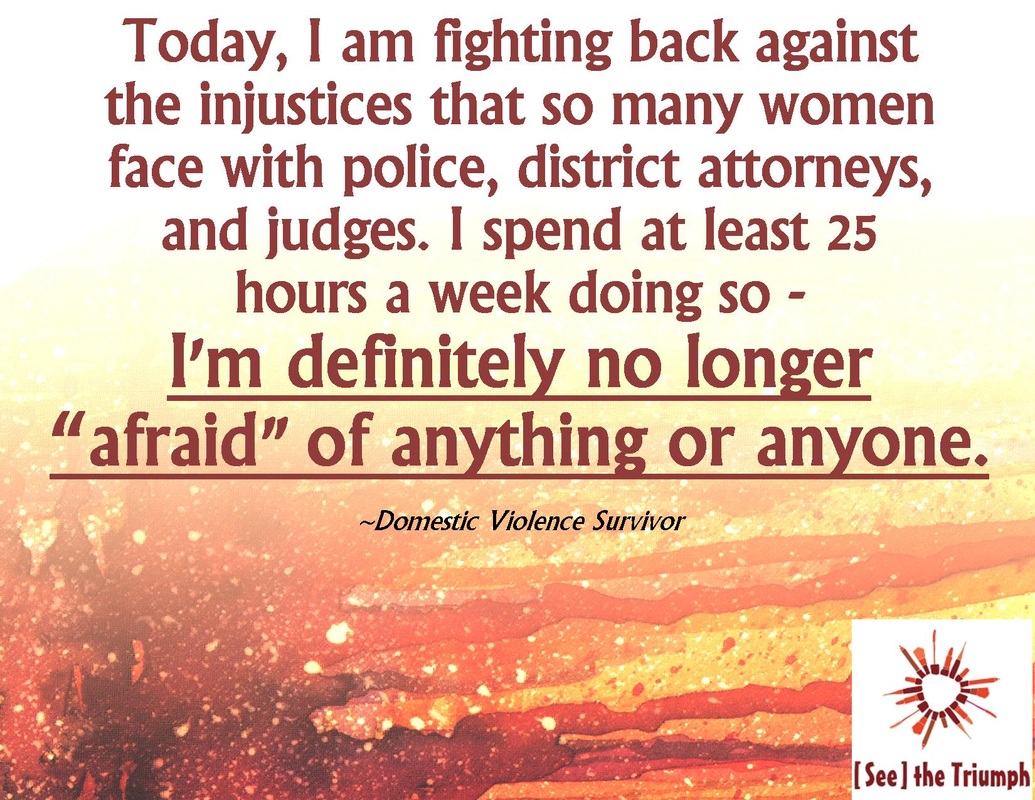
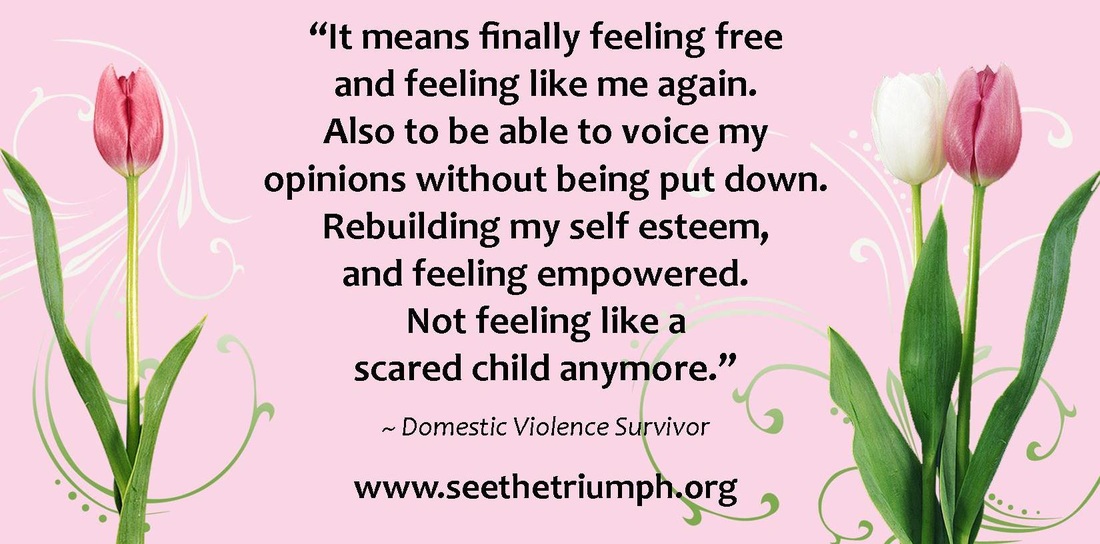
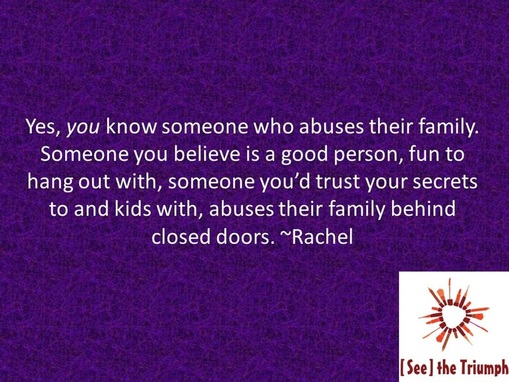
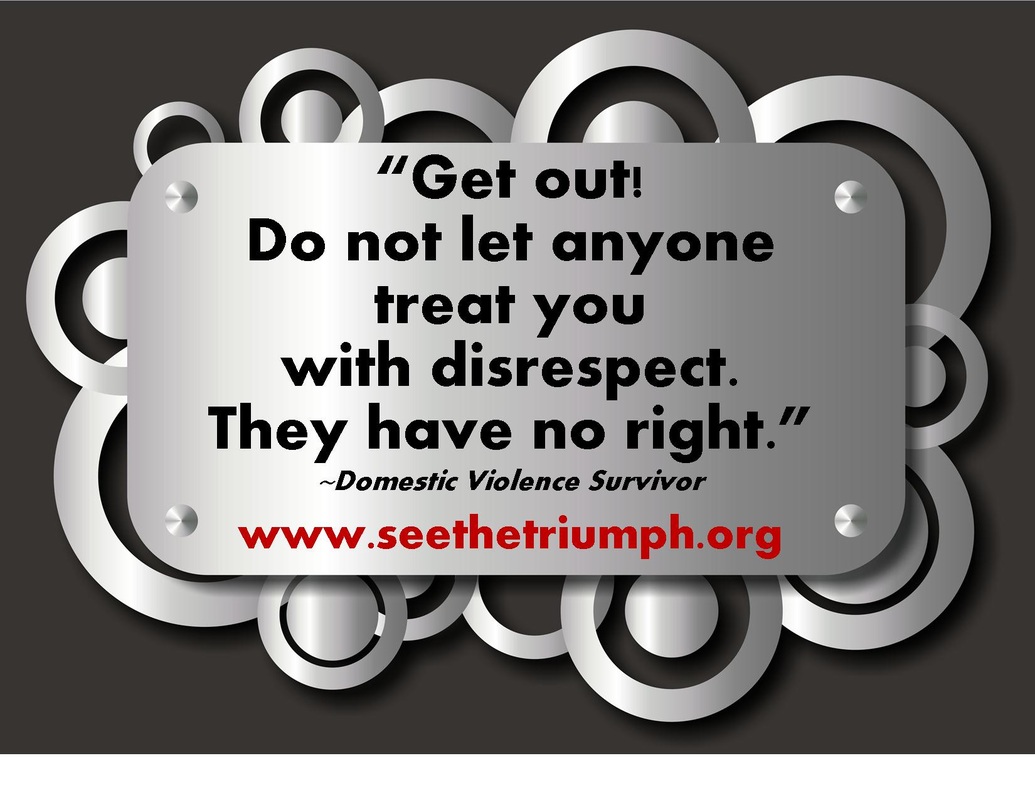
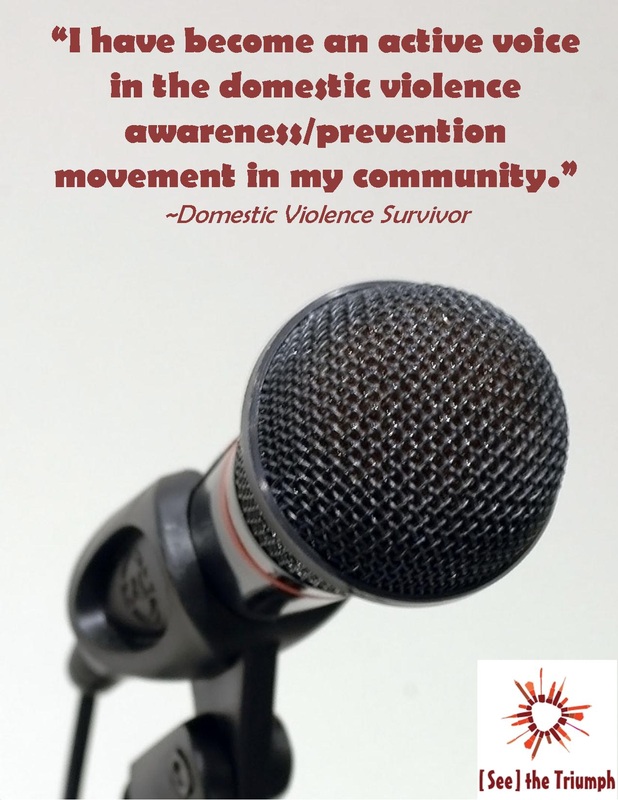
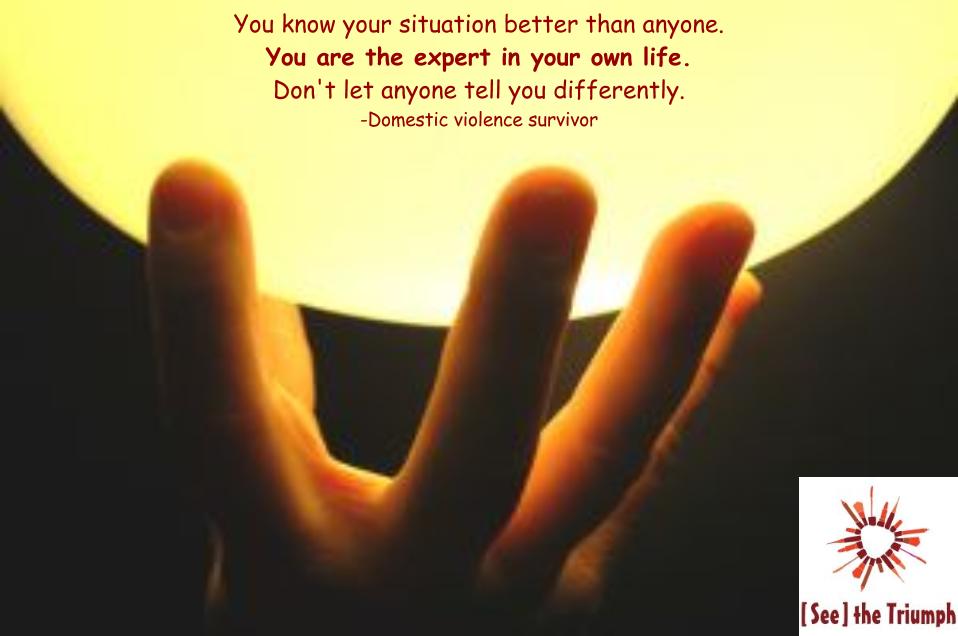
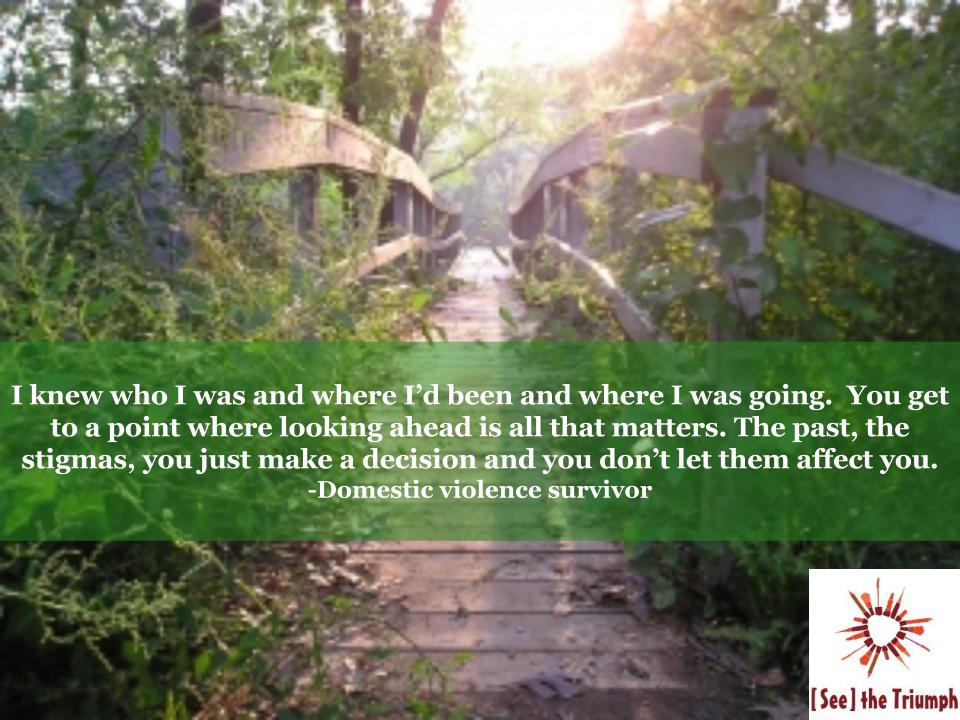
 RSS Feed
RSS Feed